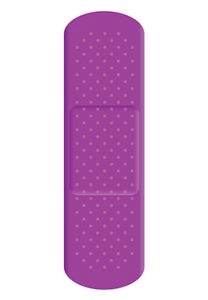Every Passover, family and friends gather to discuss the Exodus from Egypt long ago. We celebrate our freedom from the rule of an oppressive leader. It is also a time to remember not everyone in our community enjoys freedom and some are still enslaved in vulnerable situations, from homelessness to domestic violence, which can include sexual coercion, abuse or assault. Jewish Family Service asks you to place a bandage on your seder table. A bandage reminds us not everyone in our community is safe and free this holiday. Oppression doesn’t take a break. In fact, domestic violence, and the sexual abuse that can accompany it, can intensify around holidays.
 BANDAGE ON OUR SEDER TABLE
BANDAGE ON OUR SEDER TABLE
- Reminds us that many in our community need healing.
- Cautions us that our community is not immune from the pain of domestic violence and sexual abuse.
- Prompts us to educate ourselves and to break the communal silence on the topic of sexual abuse. #MeToo is a reminder that there are abuses within the Jewish community.
DISCUSSION QUESTIONS
- The bandage is used to cover up a wound. How and why is domestic violence and the sexual abuse that often accompanies it covered up in our community?
- A bandage allows a small wound to heal. But, larger wounds require more than a single bandage. Why is a bandage not sufficient for healing the deeper wounds of domestic violence and sexual abuse?
- In what ways can we see and respond with love — and without judgment — to those who have experienced domestic violence or sexual abuse?
- Who else is in need of healing in our community? In our country? In our world? How could a bandage represent them as well?
“Will #MeToo produce long-term change? I hope so. And I hope that Jewish men can play a role in creating a culture where more people of all genders can freely move through the world without experiencing harassment, objectification, or unwanted touch.” – Rabbi Daniel Brenner



